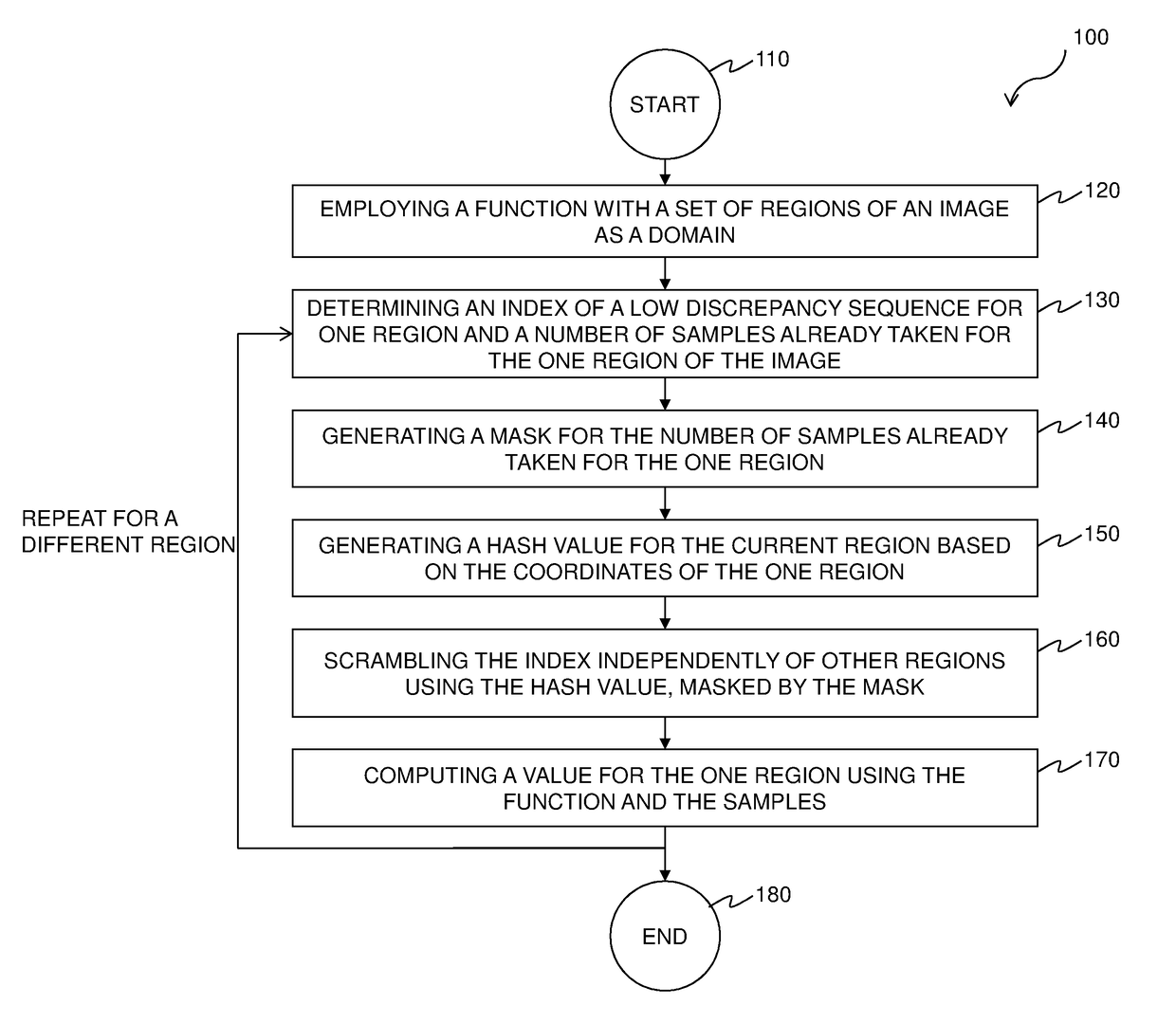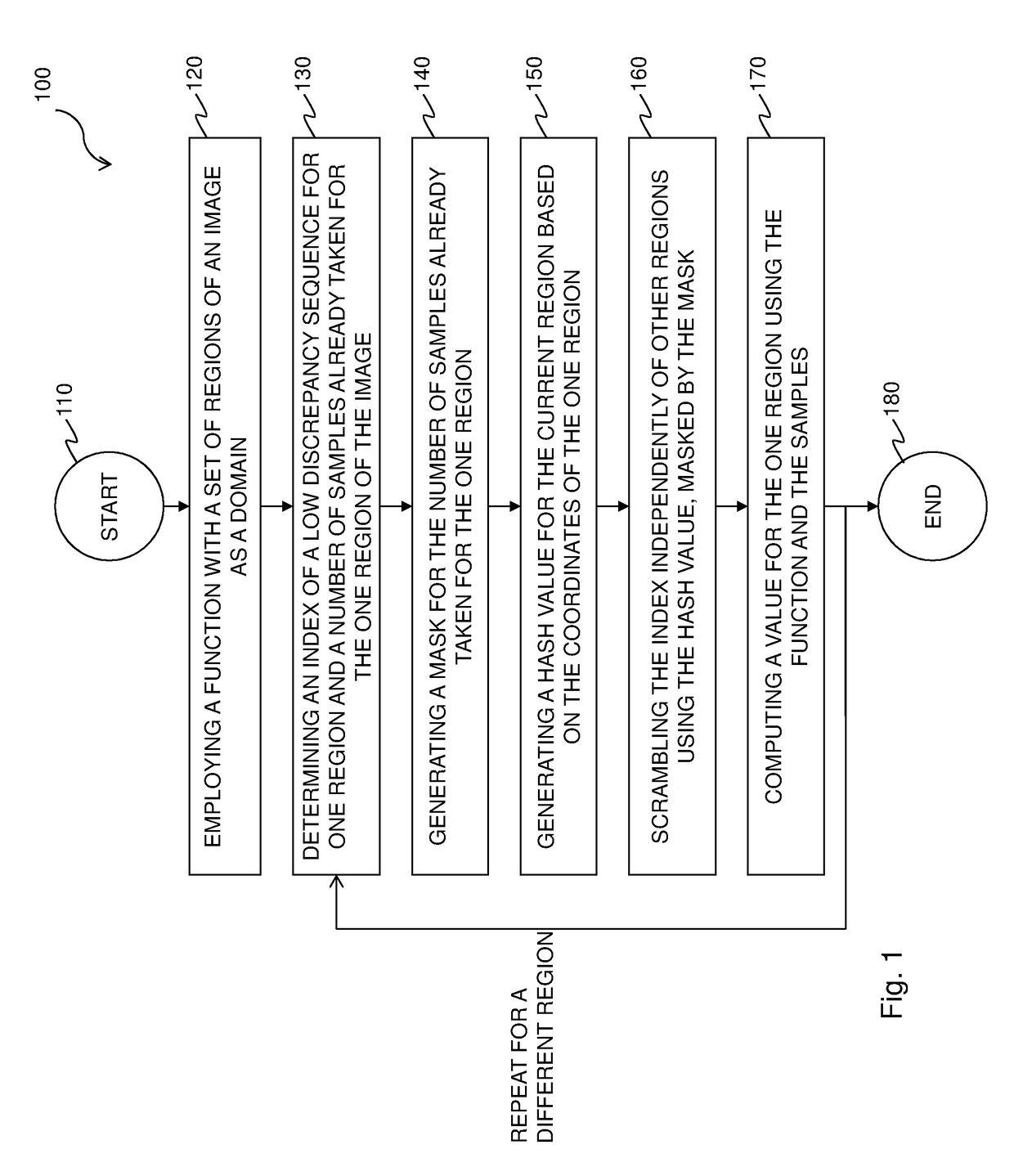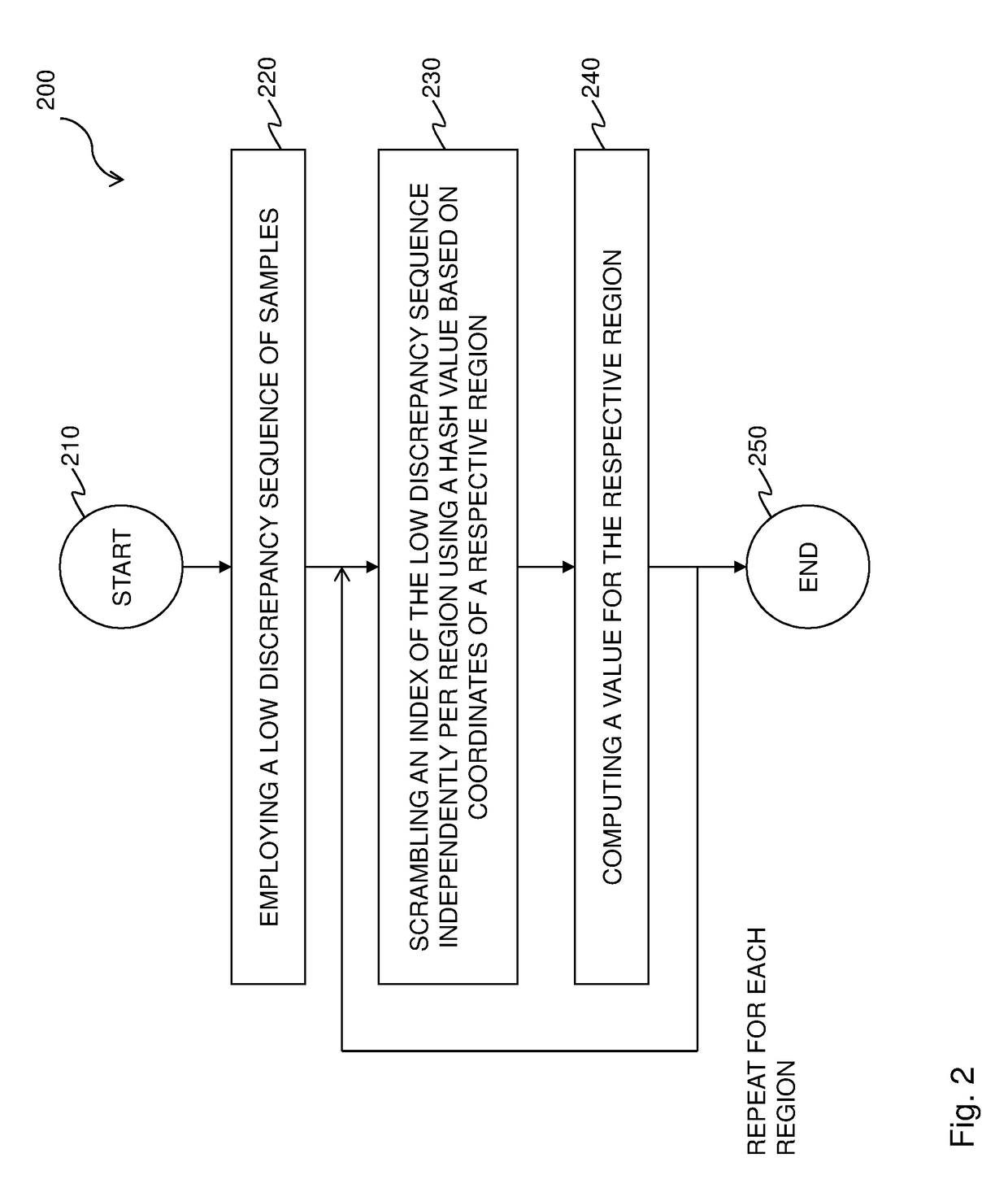Decorrelation of low discrepancy sequences for progressive rendering
a progressive rendering and discrepancy sequence technology, applied in the field of rendering images, can solve the problems of interfering with the user's perception affecting the rendering effect of the generated image, and the current techniques for performing light transport simulation have various limitations, so as to enhance the progressive computation of the light transport simulation
- Summary
- Abstract
- Description
- Claims
- Application Information
AI Technical Summary
Problems solved by technology
Method used
Image
Examples
Embodiment Construction
[0012]As discussed above, transient artifacts that become visible during rendering are distracting to the viewers. One of the common ways to deal with these artifacts is hiding these artifacts by adding noise to the low-discrepancy sequences. The noise is introduced by scrambling and / or shifting samples of the sequences using a random number generator. Although found to be effective, the additional random number generator has also been found to be somewhat difficult to implement, especially on highly parallel system such as graphics processors, and, more importantly, negatively affects the convergence speed on the average, and even drastically in some instances.
[0013]Introduced herein are methods and apparatuses that hide these transient artifacts during rendering without sacrificing the overall convergence speed of the simulation. Realizing that a power-of-two number of samples in a low-discrepancy sequence in base two (2) are well-distributed in space, the disclosure introduces me...
PUM
 Login to View More
Login to View More Abstract
Description
Claims
Application Information
 Login to View More
Login to View More - R&D
- Intellectual Property
- Life Sciences
- Materials
- Tech Scout
- Unparalleled Data Quality
- Higher Quality Content
- 60% Fewer Hallucinations
Browse by: Latest US Patents, China's latest patents, Technical Efficacy Thesaurus, Application Domain, Technology Topic, Popular Technical Reports.
© 2025 PatSnap. All rights reserved.Legal|Privacy policy|Modern Slavery Act Transparency Statement|Sitemap|About US| Contact US: help@patsnap.com



